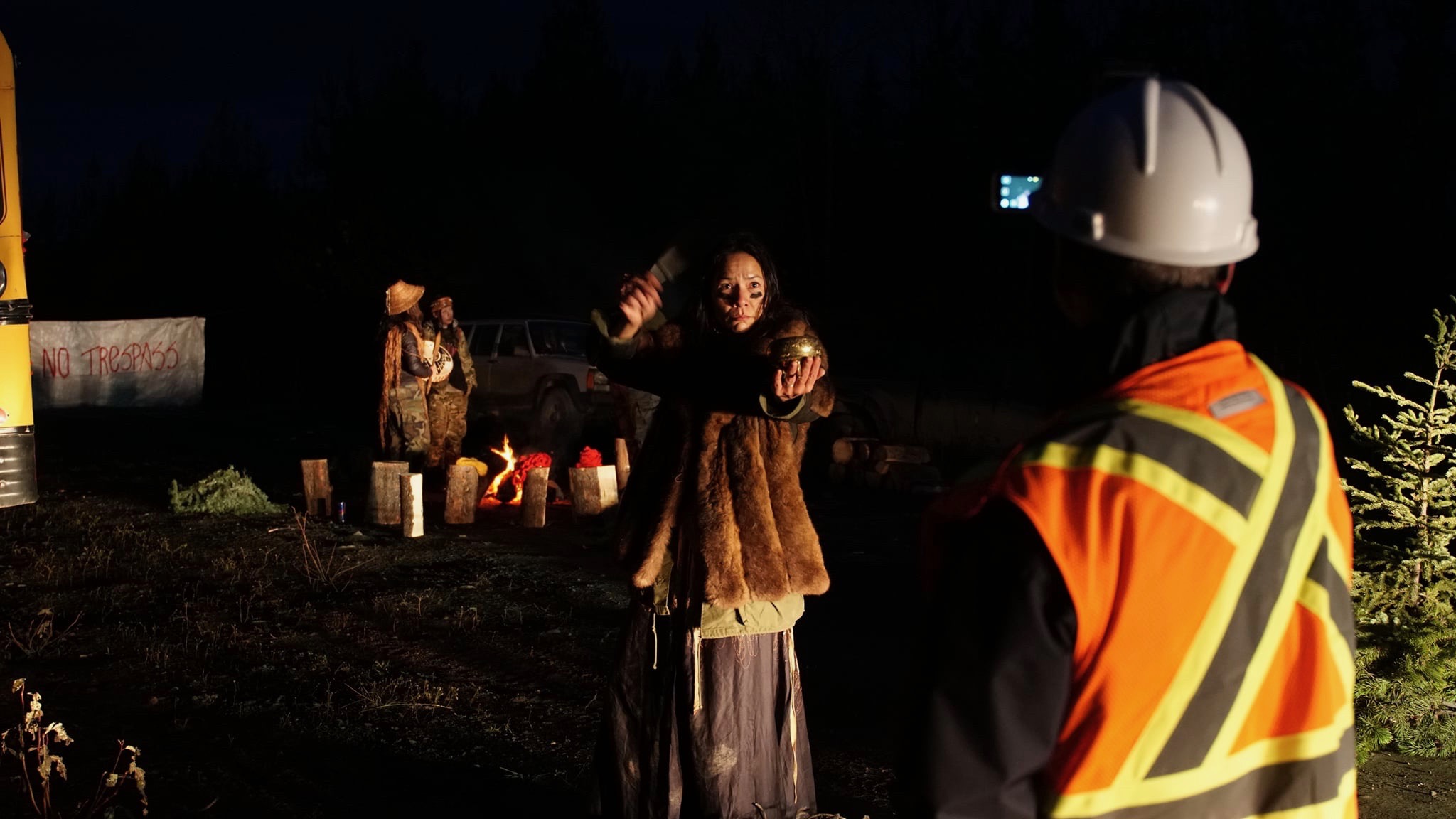Women from the Wet’suwet’en tribe in British Columbia, Canada, have occupied the drillsite of the controversial Coastal GasLink pipeline. The occupation started on October 13, Tuesday, with female Indigenous activists performing ceremonies and rituals in the area. This has sparked off another round of protests against pipeline company TC Energy, which owns the Coastal GasLink project.
The occupation of the drillsite came in response to the news of Coastal GasLink officials planning to resume construction activity on the disputed land claimed by the Wet’suwet’en traditional chiefs as ‘unceded’ lands. The construction process starts with drilling under the headwaters of Wedzin Kwa river, a major source of fresh water supply for members of the Wet’suwet’en clans who live on the Indigenous-controlled land.
Protesters have argued that the drilling will affect this fresh water source and pollute the river. In a statement before the occupation started, Molly Wickham, representative of the Gidimt’en Access Point protest camp, said that the headwaters are “under attack”.
“Our way of life is at risk. Coastal Gaslink is weeks away from test drilling beneath Wedzin Kwa — the river that feeds all of Wet’suwet’en territory and gives life to our nation,” Wickham said. “We continue to reoccupy our territories — to prepare our foods, to hold our ceremonies, to teach our children what it means to be Wet’suwet’en,” she added.
Several Wet’suwet’en traditional tribal chiefs and clan members claim that the pipeline project is being constructed under provisions of the colonial Indian Act of 1876, which does not apply to unceded lands.
“Coastal Gaslink has been evicted from our territories by the Wet’suwet’en Hereditary Chiefs – who have full jurisdiction over Wet’suwet’en lands. As CGL continues to trespass, we will do everything in our power to protect our waters and to uphold our laws,” read a call for solidarity by Gidimt’en Access Point.
However, TC Energy is armed with a court injunction that allows it to continue construction on the pipeline. The company claims that it has secured consent from the majority of the elected band council of the Wet’suwet’en tribe. However, traditional chiefs and their supporters have argued that the band council does not hold the power to delegate the use of the land.
This is set to restart a new phase of resistance by the Indigenous activists, which has now been raging for over two years. According to the activists, pipeline officials have already called in the Royal Canadian Mounted Police (RCMP), a federal police force, to evacuate the occupation.
Earlier this year, protesters had agreed to evacuate most of the campsites they had set up around the planned pipeline, while maintaining a bare minimum presence. This was also done to reduce the risk of COVID-19 outbreak within the community.
In the meanwhile, traditional chiefs had initiated parallel negotiations with the authorities over the land’s status. They also held meetings with TC Energy.
The provincial government of British Columbia and the federal government of Canada signed a historic memorandum of understanding in May this year to begin negotiations over the pipeline construction. The memorandum was signed by the Canadian government to preemptively work out an arrangement that will avoid future conflicts in the area. This followed more than a month of nationwide protests in support of the Wet’suwet’en protesters.





